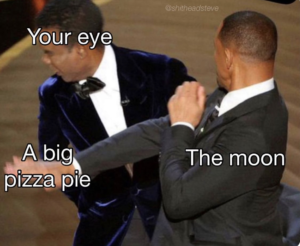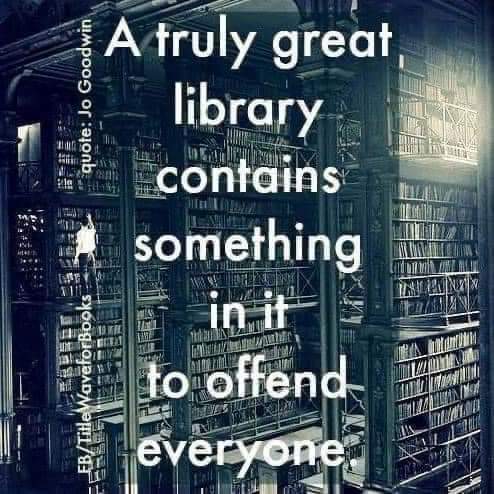 Compulsory schooling is net-harmful. Here’s my reasons why, starting with my three major objections, which apply to mid-teen and late-teen public schooling (called “high school” in the USA). These are followed with several more commonly heard points, which apply more to early schooling for pre-teen children.
Compulsory schooling is net-harmful. Here’s my reasons why, starting with my three major objections, which apply to mid-teen and late-teen public schooling (called “high school” in the USA). These are followed with several more commonly heard points, which apply more to early schooling for pre-teen children.
I – High School Steals Life-Years During Crucial Psychological Transition States, Causing Immense Mental Anguish
By their mid-teens most humans are at a developmental stages where they have a drive to begin their lives. There is a strong desire to contribute something of value to their community or family, or to begin accumulating worth for themselves. This doesn’t necessarily mean material wealth — reputation, respect, and advancement are extremely valuable. In the pre-modern era, by this age most people would have duties and responsibilities that matter. Their peers or family would be counting on them in some way.
Teens in school, on the other hand, are acutely aware that nothing they do matters. They are given endless hours of busy work, which is thrown away after it’s done. They are prohibited from doing anything of value, locked in a holding pattern of meaningless stasis for years. Not only are these years subjectively far longer than the years that older adults experience, they are also some of the most energetic and healthy years of most people’s lives. They are burned for nothing.
II – High School Is Literally Low-Intensity Physical Torture Via Sleep Deprivation
Most teenagers naturally have later sleep cycles than older adults. They also need more sleep than older adults. Older adults run schools, and they don’t care about the natural cycles of legal minors. In addition, since teens are compelled to waste so much of their waking hours on schooling yet still desire other activities, they will often cram in more activity at the cost of even more sleep. As a result, 3/4ths of teens are chronically sleep deprived. Severe sleep deprivation is a tool of torture. Less severe but chronic sleep deprivation is low-key torturous, and also causes long-term psychological damage.
III – High School Has The Social Dynamics of a Prison
Rates of depression and mental health disturbances by teenagers outstrips that of all other demographics. This was not the case in the pre-modern era. Much like criminal prisons, many in school turn to alcohol, prescription drugs, or illicit drugs to claw their way through this time. With no way to measure status via metrics that matter, students form into cliques and form hierarchies based on surface appearances and local popularity. Anyone not in a clique suffers social isolation and sometimes harassment, and it can be difficult to join one. Even within cliques, many people spend much of their time tearing down rival members in zero-sum status games, or abuse of low-ranking or new members.
Nearly 100% of our population endures these years of torture, and it’s been deranging us for generations.
The thing is, I had a pretty darn good schooling experience. I was a precocious child. I loved learning. I honesty and thoroughly enjoyed a well-delivered lecture, and scribbling notes as fast as I could. I loved taking tests and scoring well on them. Test taking is a skill all of its own, and it’s fun to be good at something hard. My teachers loved my enthusiasm for learning, and by extension loved me. I sometimes got special privileges. My school was in a progressive middle-class suburb, with minimal social nastiness. And yet…
And yet everyone I know (including myself) feels like we “survived” high school. Yes, almost everyone survives high school, it’s designed to take people to the brink without pushing them over. The fact that the experience is one of having survived an ordeal by so many is a very strong sign that something is wrong. More importantly, the survivors come out scarred and deranged in significant ways, and they make up nearly the entire populations of our country. Despite my relatively “good” experience, I was deeply depressed in high school, especially the later years. I cut myself for some time, and came to the brink of suicide at one point.
I’m in my early 40s now. When I see a school, I still get a powerful frisson of awe and horror. Especially large, institutional buildings, with multiple wings sprawling over a wide campus, with several areas 2-3 stories tall. I am drawn to them, wanting to be inside that alternate reality once more, despite feeling all the old scars throbbing at the sight. It hurts, and it’s sweet, and I think this is what Stockholm Syndrome must feel like.
Is there some social benefit that justifies this mass emotional scarification?
Other Harms of Schooling, Which Are Also Not To Be Overlooked:
(many of these are also variations of “destroying years of life for no gain is very bad”)
1. Compelling Those Who Don’t Want Schooling To Be Confined With Those Who Do Is Damaging To Both
Children and teenagers who don’t want schooling are forced to attend anyway. These include both students who won’t learn, and those who already know that which they’ll be instructed on. They are confined in boring rooms with nothing to stimulate them. This style of low-grade sensory deprivation is already damaging. These students will often resort to rebellion and disruption, which makes it impossible for even those who would benefit from the instruction to gain anything from it. The result is fruitless confinement for everyone, wherein no one learns anything, and vast time and resources are wasted.
If the students who didn’t want to be there were not compelled to attend, they would have much better lives, and the students who do want to attend would have a chance to learn something.
2. The Majority of pre-5th Grade Instruction is Wasteful
When humans need to learn something, especially humans under the age of 30, but SUPER ESPECIALLY humans under the age of 20, they will learn it quickly of their own accord. Anyone who’s watched a child master a game they are interested in already knows this. Anyone who’s watched a child teach themselves to read so they can consume another story knows this. Anyone who’s seen a child experiment with tools or physics or bugs already knows this. Anyone who has created a website, or podcast, or renovated their home, or stayed a few months in a foreign country, already knows this.
When you need to know something, you learn it. You learn it quickly, and you know the value this knowledge has to you. There are a lot of things that people need to know to function in our society, such as basic literacy and numeracy. When they aren’t shackled by plodding instruction, imprisoned in an institution that doesn’t let them see how this knowledge is useful to them, and plied with extraneous trivia, children can learn all the basics in just a few hours per week, rather than burning every non-weekend day (before accounting for homework).
3. The Vast Majority of Learning is Wasted
All students are instructed in roughly the same things. This is a gross misuse of time, because students have very different aptitudes. Some excel in math, and should be spending a lot of time honing and exploiting those skills. Some pick up reading very quickly, others languages, or physical systems. When everyone is instructed at the same pace, many are instructed in things they have no aptitude for. They shouldn’t be wasting any time in those areas after they master the basics needed to function as an adult (usually what we call the “fifth grade level,” those most people could achieve that level of mastery long before the traditional fifth-grade age). Continuing to compel students to take instruction on topics they don’t have aptitude for and will not use is a destruction of their life-years.
4. The Vast Majority of post-5th Grade Instruction is Useless
In harmony with point #1, when you don’t need to know something, you forget it quickly. Everything learned after elementary school is knowledge that is only needed in limited domains. Every single student will lose 90% of what they learn by the time they are in their 30s. No matter how smart they are and no matter how demanding of a career they pursue, at most 10% of what they learned will actually be used by that career. Therefore, it will be forgotten. The greatest physicist of our generation won’t remember anything worth remembering from Honors Biology or World History. The few things s/he will remember are things they would have picked up as an adult anyway. Every hour spent on that unused 90% of compelled schooling was pure waste.
In summary, no one should be compelled to go to any school. Compelled schooling is in some ways worse than incarceration, as confined students are guilty of no crime.
If the populace is taxed to provide for general education (which I agree is a public good), the parents of minors (or teenagers who’ve reached majority) should be allowed to direct that money to any school they desire. If they attend no school, but pass tests proving competency, that money should be refunded directly to the parents/student for having done the labor of educating the child/themselves.
The amount of suffering and the vast amount of life-years lost by compelled schooling in the US is unconscionable.






